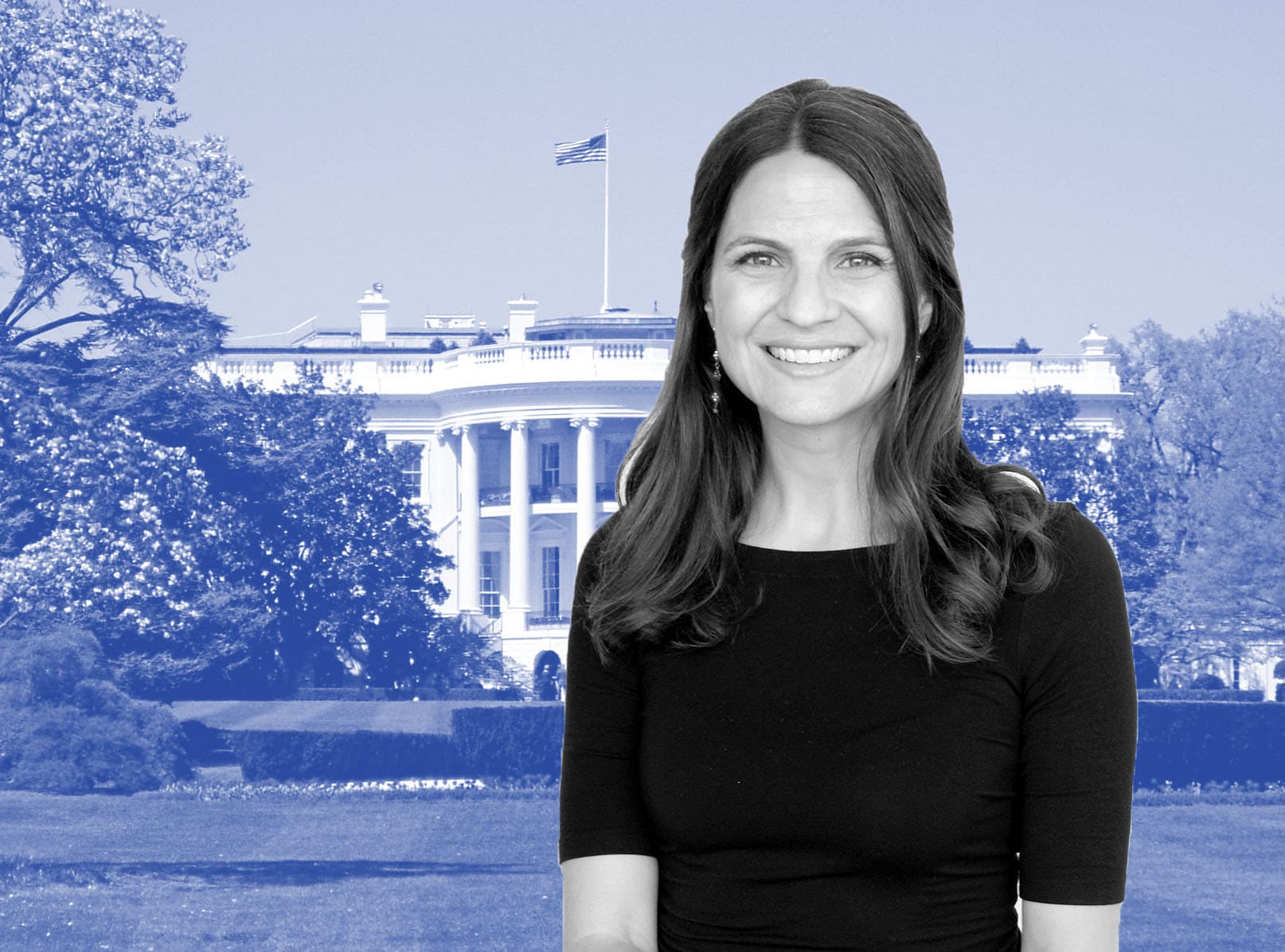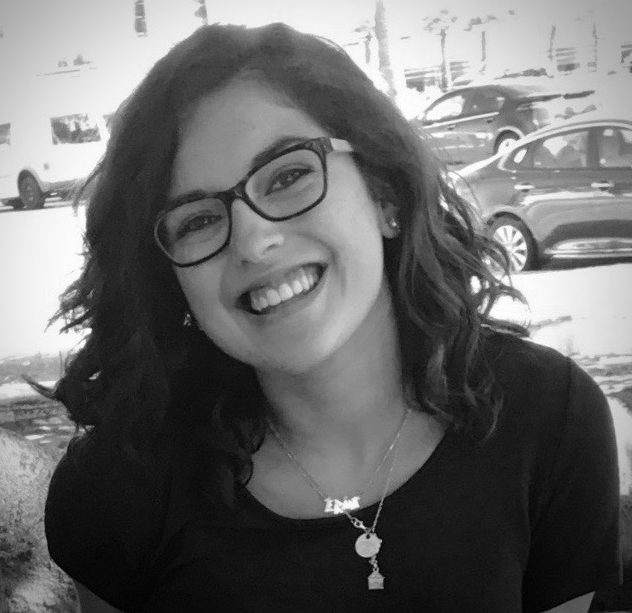 Rabbi Sharon Brous (Photo of Rabbi Brous courtesy of IKAR. Photo of White House from Wikimedia Commons)
Rabbi Sharon Brous (Photo of Rabbi Brous courtesy of IKAR. Photo of White House from Wikimedia Commons) On November 13, IKAR Rabbi Sharon Brous found out that she is among the few religious leaders being considered to consult President-elect Joe Biden when his term begins in 2021.
Since 2000, when President George W. Bush established in the White House a permanent liaison for outreach to religious groups, interfaith leaders around the country have offered their insights when asked by the sitting president.
“Advisers to Biden say that for official matters, Biden might turn to Rabbi Julie Schonfeld, former chief executive of the Conservative movement’s Rabbinical Assembly, or to Rabbi Sharon Brous, the leader of IKAR, a prominent Los Angeles congregation,” the Washington Post reported on November 13.
“I would be deeply honored to be in conversation with the Biden-Harris administration in whatever way would help advance the work that we’ve been doing now for many years in building a multi-faith justice movement that can really have a voice in building a more just and loving society,” Brous told the Journal.
The list of potential faith leaders includes Rev. William J. Barber II and Rev. Liz Theoharis, co-chairs of the Poor People’s Campaign; Rev. Jennifer Butler, head of the advocacy group Faith in Public Life; Rev. Gabriel Salguero, founder of the National Latino Evangelical Coalition; and Rev. Traci Blackmon, senior pastor of Christ the King United Church of Christ, to name a few.
Although Biden has not made any official decisions, the Washington Post said that the Democratic president-elect is likely to select various religious leaders who will rotate in a fixed advisory council underneath a White House faith office.
For 16 years, Brous has created a spiritual roadmap for her community at IKAR. A major component for her and her religious team is creating faith-inspired, justice-driven Judaism in Los Angeles, with messages and programs that can be used around the country. She and her team fight for an array of social justice causes, such as climate change, support for refugees and a more united Los Angeles community by working alongside interfaith leaders.
Regardless of who offers faith-based insights to the White House, Brous believes faith leaders, in addition to lawmakers, must go through a healing process before they can make substantial changes.
Regardless of who offers faith-based insights to the White House, Brous believes faith leaders, in addition to lawmakers, must go through a healing process before they can make substantial changes.
“People are so torn apart in our country… more than a quarter of a million people have died from this pandemic, and the [issues] we are still talking about are still unresolved,” she said. “How do you move through a time of trauma and begin to heal again? There is some really important spiritual work that has to be done so that healing can be done. Healing is the last step in a long process to transform our hearts. I don’t even think unity is the goal right now.”
Since March, Brous has looked to the rabbis who documented the destruction of the first and second temples in Jerusalem for guidance on how to handle multiple catastrophes. Brous explained that Americans are “experiencing one world dying and another world being born.” To move forward better and stronger, the rabbi said the country needs to grieve, seek out the nation’s truths and then rebuild.
“This has to be a time for national public grieving. It is absolutely essential. [The rabbis] didn’t just move on; they took the time to honor what had been los[t]. There is strength that comes from mourning,” she said. “The second piece is about truth-telling… This is so critical in our time. There are truths in our country we have been unwilling to tell for hundreds and hundreds of years. Those truths are part of what lead to this massive upheaval we’ve seen over the last several years. The public health crisis, climate crisis, the racial injustice crisis — these all came from a failure to tell the truth about our country.”
Brous said once the rabbis grieved and sought out the truth, they went to rebuild. They didn’t build back the same way; they built for an evolved new reality. If Brous is asked to contribute anything to the administration, she will share these insights because she believes they’re critical. She also believes the clergy who have been called upon will do the same.
“There is so much wisdom in our traditions,” she said. “In whatever way it is, whether we’re invited into an official conversation with the administration or whether each of us is called to use our own pulpit to preach a Torah of healing and a Torah of hope, that’s what we are going to be called to do in these coming days.”























 More news and opinions than at a Shabbat dinner, right in your inbox.
More news and opinions than at a Shabbat dinner, right in your inbox.